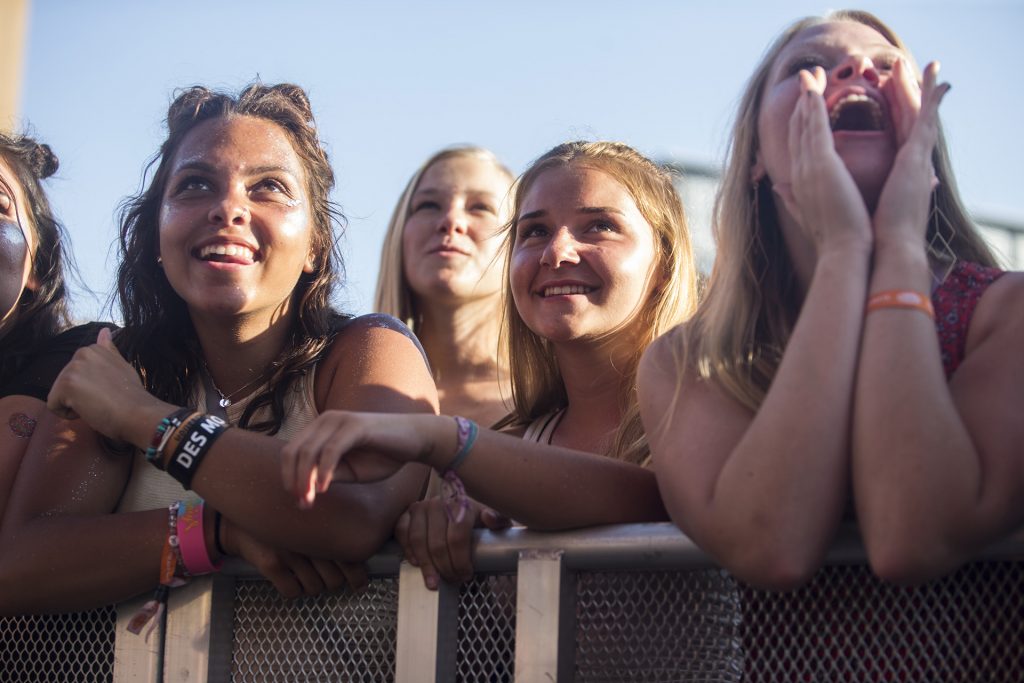For 80/35 to have female headliners, and a healthy slew of female performers throughout the festival, they battled a nationwide trend of female performers being just a fraction of the male acts booked to play festivals.
According to a May report by Pitchfork, despite having a 5 percent increase in female performers in 19 U.S. festivals, all-male acts still take up more than 70 percent of festivals.
In fact, in 2018, only three of those 19 major festivals had a 50/50 breakdown of male to female acts: FYF, Pitchfork, and Panorama.
However, at 80/35, female acts brought the thunder.
Sarah Barthel’s vocals in musical duo Phantogram gave it the edge and the power. As did Courtney Barnett giving a soul-bearing roar to the sound of a shredding guitar, then following up with a small, “That was fun” or “Thanks.”
Nowhere, however, was this intense, feminine power highlighted more than Kesha’s performance. How can you describe the feeling of hearing “I’m a mother**king woman” sung with a loud might that shook the crowd and made the hair on my arms stand on end? Or after the first song, when she remarked that not enough of her ass was showing, and she took off her pants and put on a literal cape, the image of female superhero?
RELATED: 80/35 gives a musical platform for an organization empowering girls
But Kesha was not all power through sexuality and joy; half of the power came from the vulnerability, her tears after “Praying,” the bare-bones cover of Dolly Parton’s “Jolene,” her voice echoing out over the crowd.
Kesha was an entire experience that felt genuine and authentic. Her dedication of “We R Who We R” to her LGBTQ fans, her thanking everyone in the audience for being patient with her when she wasn’t putting out music, her telling the crowd that when they chant her name, ‘It’s the nicest thing, but I have no idea what to do with that” and laughing.
Seeing such female power in performance gave me a strength and inspiration; going into this, Kesha was not big on my music radar, but leaving this, I felt happy, empowered as if yes, I, too, was a “mother**king woman.”
Jumping in the crowd, it did not matter how 20 minutes before the show, a female friend and I were actively trying to avoid being crushed by the larger men around us, one of them inebriated and sliding closer and closer to us.
It did not matter how, when walking through festival crowds, women are encouraged to make themselves as small as possible, to not get grabbed, not get groped, and if it happens then, hey, what can you do?
It did not matter, for me and for other girls in the crowd, the heavy anxiety that comes with being a woman; in that performance, even if for a moment, it was lifted. We were mother**king women, and we were jumping with Kesha, singing along when she said, “Don’t let the bastards get you down.”
There’s an empowerment that comes with strong female performers, there’s a little girl perched on her parent’s shoulders watching a woman lead a crowd and be important, and vulnerable, and herself, and celebrated.



